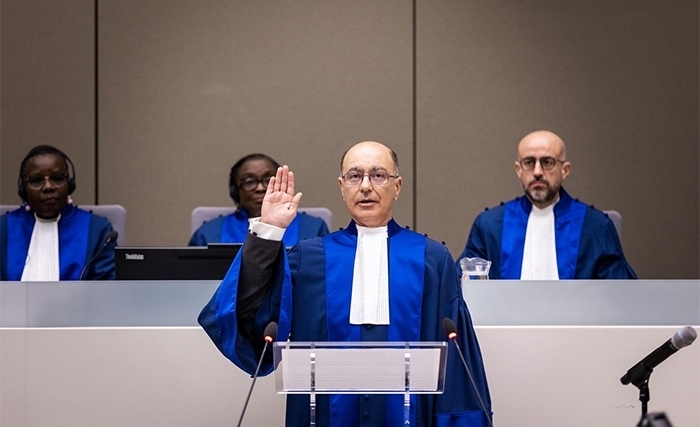During a solemn ceremony held on March 8, 2024 at the headquarters of the International Criminal Court (ICC) in The Hague, the Netherlands, Haykel Ben Mahfoudh, a Tunisian judge recently elected to the ICC, took the oath of office.
He was elected for a nine-year term at the 22nd session of the Assembly of States Parties to the Rome Statute in New York last December.
Read more: International Criminal Court: Mr Haykel Ben Mahfoudh takes oath as new judgeAfter a distinguished academic career beginning in 1996, Mr. Ben Mahfoudh obtained his doctorate in international humanitarian law from the University of Carthage in 2005. His areas of research include environmental protection during armed conflicts, victims’ rights , security sector reform, human rights and democratic transitions, underlined ICC President Piotr Hofmanski.
Mr. Haykel Ben Mahfoudh was elected among the six new judges during the twenty-second session of the Assembly of States Parties (ASP) to the Rome Statute in December 2023. These judges, with nine-year terms, will officially begin their duties on Monday, March 11, 2024, then devoting themselves full-time depending on the workload of the International Criminal Court.
The International Criminal Court is composed of eighteen judges who are chosen from among the nationals of the States parties to the Rome Statute. These judges are selected from among individuals enjoying high moral standing, recognized for their impartiality and integrity, and meeting the criteria required in their respective States to occupy the highest judicial offices. The election of judges aims to guarantee the representation of the main global legal systems, equity between men and women, as well as balanced geographical distribution.
The International Criminal Court (ICC) is a permanent international criminal court with a universal vocation, responsible for judging people accused of genocide, crimes against humanity, crimes of aggression and war crime. The Court also places its action in a preventive and dissuasive dimension: the objective is to hold individuals accountable, whether civil or military authorities.
